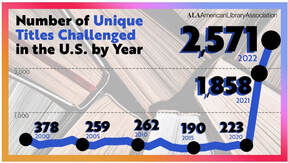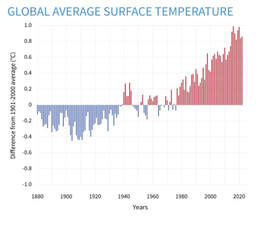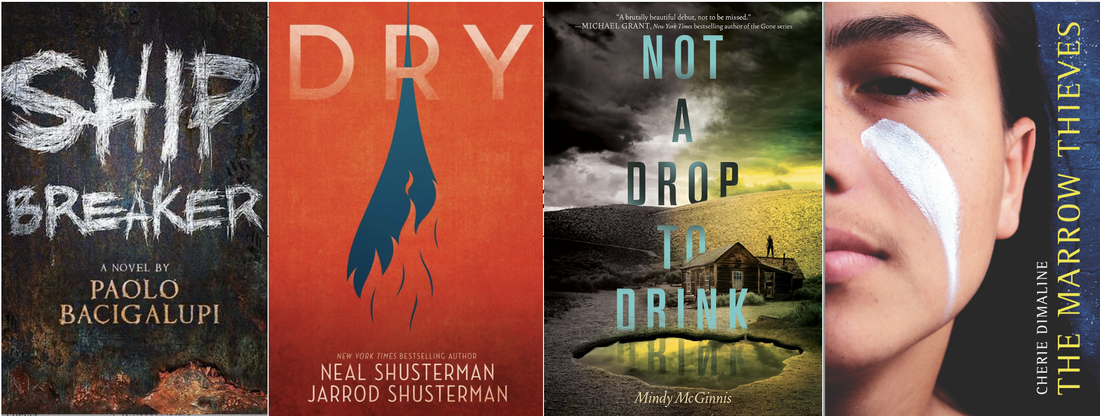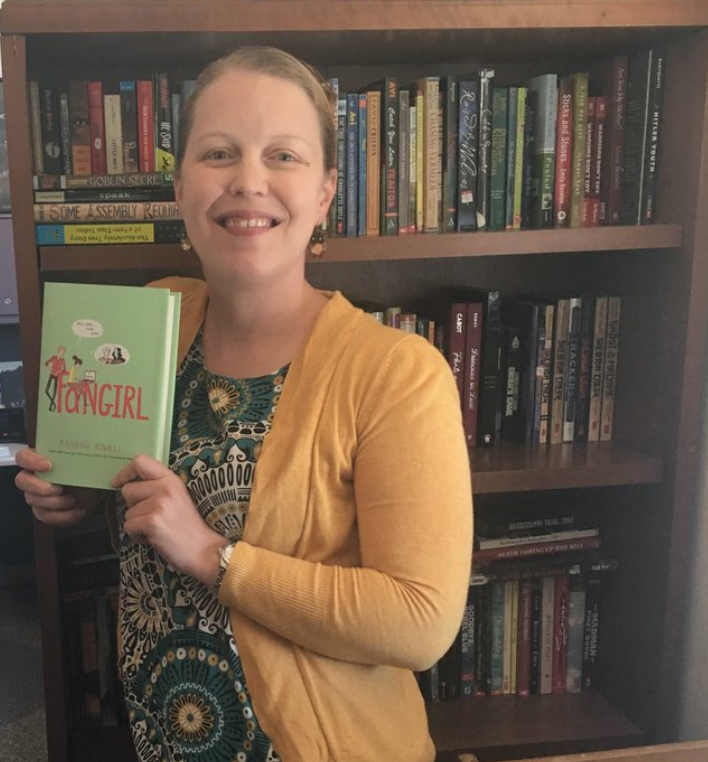
| On a different graph, this time of the world’s global average surface temperature, we see the same drastic increase but with an inverted level of attention and immediacy. We can draw the conclusion then that while our planet hurtles toward a flammable end, some Americans are more concerned with the metaphorical flames they wish to consume inclusive and thought-provoking texts. |
Providing students space in the classroom to read and digest climate-fiction allows them to process and problem solve lived and potential catastrophic events without the physical trauma of first hand experience. When a student reads the story of Lynn, a 16 year old defending her only source of potable water from despotic militia forces in Mindy McGinnis’ Not a Drop to Drink they can imagine themselves as decision makers and resource protectors fostering empathy for many of the members of the global majority already suffering from water scarcity. A paired reading with Neal Shusterman’s California-situated Dry will have students comparing Alyssa’s choices for survival as humans decide whether they will support or fight each other for burnt-out natural resources. A reading of both books offer “what would you do” scenarios for young adults who may actually have to make those decisions and choices about a dying planet in the near future.
Along with providing kids with opportunities to problem-solve both prevention and reaction to the climate crisis, YA cli-fi sheds light on the inequitable impacts and disproportionate effects of the climate emergency on the Global South, people of color, people in low-income communities, and indigenous nations. Cherie Dimaline’s The Marrow Thieves reveals the cyclical nature of history as colonizers chase down indigenous people yet again, this time in a world ravaged by climate change that has limited the space in North America that is livable. The indigenous people who rely on their knowledge of the land to survive communally are led by a 15 year old desperate to escape the white “recruiters” that stalk them. The book is a metaphorical retelling of the way industrialization and colonization destroy indigenous ways of being that might have nurtured planetary longevity.
In this same “we told you so” and “you should have listened to us” vein, Nailer from Paolo Bacigalupi’s Ship Breaker meets a young upper class girl totally disconnected from his experience as a copper scavenger in the mega hurricane volatile watery regions of the future Gulf Coast. His story weaves a tale of how poverty inequity will only be widened by climate change and the ways in which young people who lack privilege will be marginalized and abused by a world even more bereft in natural resource stability than our current reality. Though incredibly dark at times, it’s a tale that enables students to say “not if I can help it” to the not-so-inevitable doom haunting their very real futures.
Literacy has a long legacy of chain-breaking and world-making. Adults have the responsibility to pass down the power of literacy to young people so that future generations can craft a world healthier, more inclusive, and more just than the version they inherit. Providing young people with stories of both tragedy and resilience backed by scientific realities fosters a sense of urgency and creativity about the climate crisis so that they can view themselves as change agents rather than victims; critical citizens rather than passive participants.






 RSS Feed
RSS Feed